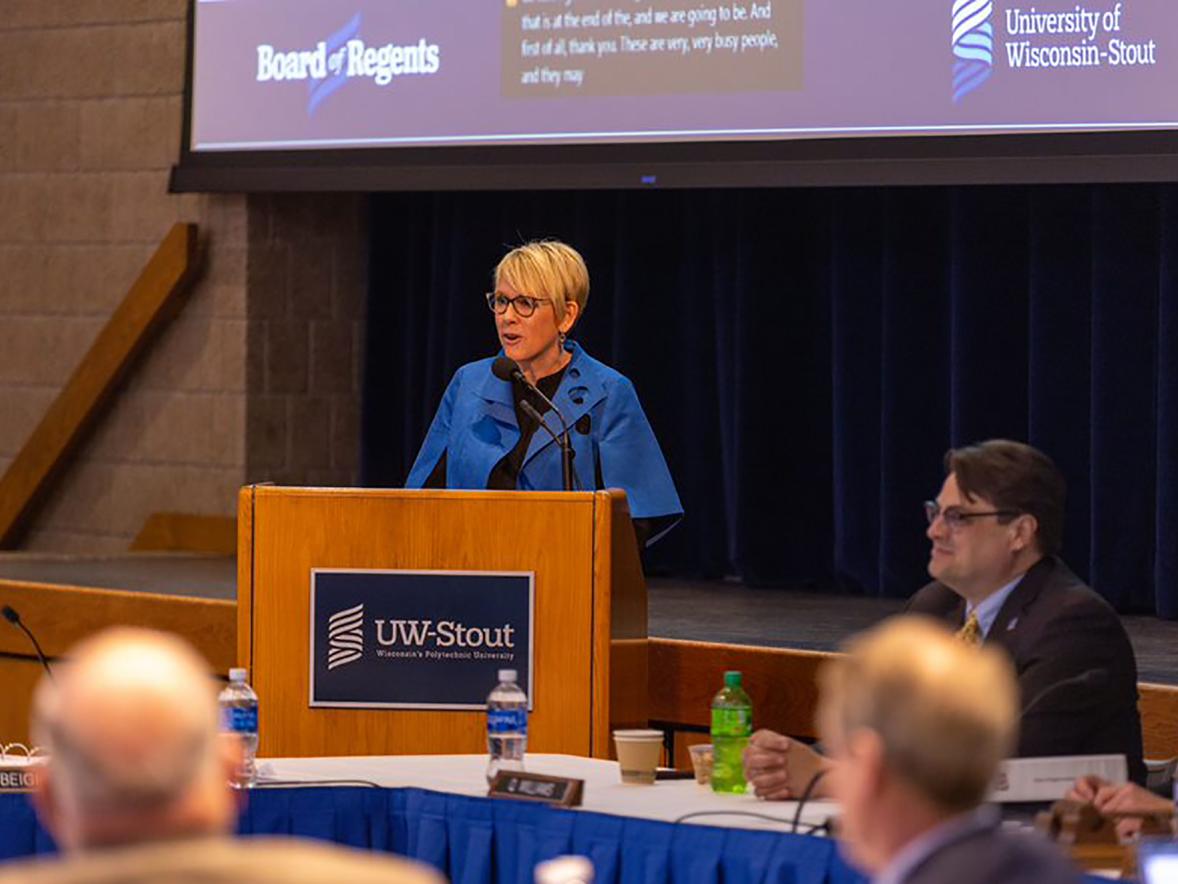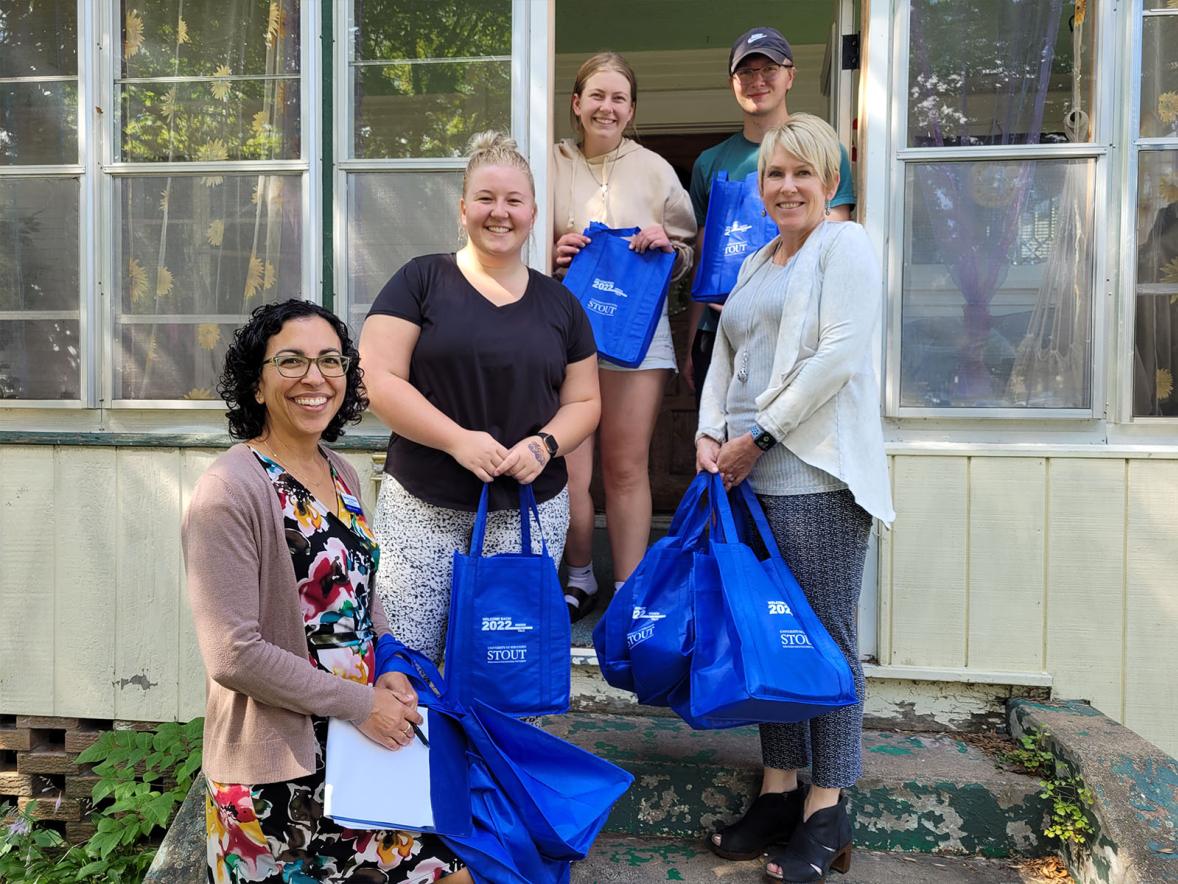Raymond “Brad” Bradshaw enrolled in the manual training department at the Stout Institute in 1914. He came to Stout from Topeka, Kansas where he had attended the Industrial and Education Institute. Bradshaw is believed to be the first Black student to enroll at Stout, and census records show that at that time, there were a dozen or fewer Black residents living in Dunn County. His senior thesis was titled “Industrial Education for the Negro,” and he earned two letters at Stout as a defensive end on the football team, sang first tenor in the Glee Club and Men’s Quartette, and played the clarinet in band and orchestra. Bradshaw went on to serve in the military during World War I, later attended Kansas State Teachers College, and then taught at Theodore Roosevelt School in Gary, Indiana. He had five children, and one of his daughters, Mary B. Henry, became a Civil Rights activist who helped create the national Head Start program.
Bradshaw’s enrollment at Stout reflects an important part of our history and should remind us of the work that we continue to have before us as we strive towards change with respect to equity, diversity, and inclusion (EDI). As we continue to focus on comprehensive student success and improved employee morale as part of our new strategic plan currently under development, we must all commit to learning together and continuing to foster an inclusive culture at Stout.
February is Black History Month and presents an opportunity for each of us to pause and become better informed about the significant contributions of, as well as the significant injustices, experienced by Black Americans. I encourage you to take advantage of new university resources available and upcoming events, including:
- The Race, Racism and Anti-racism Library Guide--a free digital resource offered to all staff, students, and faculty through the University Library. The development of this guide was recently led by the Associate Dean of Students for Equity, Diversity and Inclusion, Dominique Vargas, with assistance from Kate Roberts Edenborg, Rickie Ann Legleitner, Leni Marshall, and Sylvia Tiala and will continue to grow and expand. Recommendations for additions are encouraged and may be sent to library@uwstout.edu.
- Honors Colloquium events—in addition to the group discussions with students, the Honors College is hosting a panel discussion on Wednesday, Feb. 17, via Teams (the link is also available on the University Calendar) about the Spring Honors Colloquium text “Between the World and Me,” by Ta-Nehisi Coates. Panelists include Tina Lee (anthropology), Chris Freeman (history), Lopa Basu (English), and Dominique Vargas (associate dean of students for equity, diversity and inclusion).
- 2021 Peace March and debriefing session—taking place on Friday, Feb. 19, (the march will begin at the Memorial Student Center amphitheater and occur from 12:30 to 2 p.m., and the debriefing session will take place from 2:15 to 4 p.m. in MSC Ballrooms A and B). These events are organized and co-led by students. Both the march and debriefing session will adhere to university safety protocols.
- Embracing Everyday Diversity: Alignment—the third session of a four-part professional development series for UW-Stout faculty and staff featuring Justin Jones-Fosu.
- “Diversity Week” from February 22-26--this week will include a wide variety of events listed on the University Calendar as well as on the Human Resources’ Diversity Week Registration site where you can register for these events.
This is not a comprehensive list of upcoming EDI offerings, and I urge you to review the university calendar, Human Resources Share Point site, and other UW-Stout resources for information regarding additional opportunities. I am pleased that UW-Stout is able to offer these and other similar resources and EDI professional development opportunities throughout the year, many of which have been prompted by requests and ideas from faculty, staff, and students.
As John Lewis writes in “Across That Bridge: A Vision for Change and the Future of America,” “Take a long, hard look down the road you will have to travel once you have made a commitment to work for change. Know that this transformation will not happen right away. Change often takes time. It rarely happens all at once.”
I am proud of UW-Stout’s commitment to change and grateful for the leadership among our employees and students working hard for this change.
Regards,








